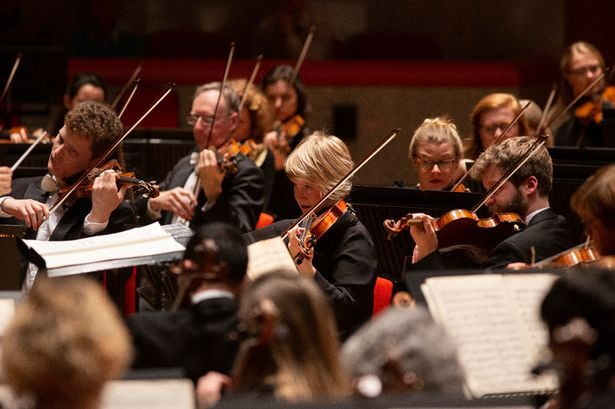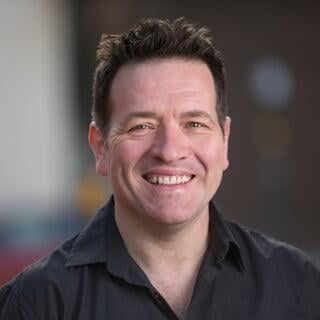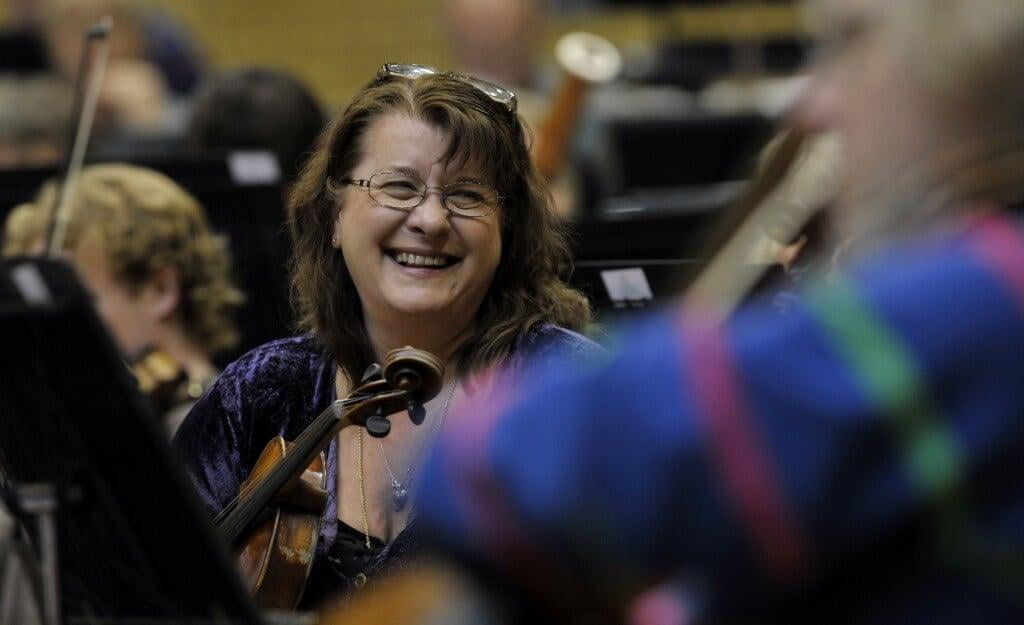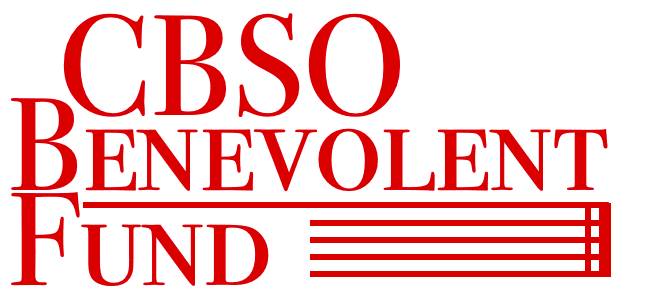
Donate to our
Fund
The most vital way you can help the musicians of the CBSO is by supporting the orchestra and coming to all of our concerts! Visit the City of Birmingham Symphony Orchestra's main website for information on all other concerts and activities.
We gratefully receive legacies and donations of any size, which will go towards supporting our colleagues in work and retirement. If you would like to make a donation, press the button below. To contact us regarding larger donations, please email us here.
As a registered Friendly Society we are unable to access Gift Aid, and PayPal charges a small percentage for every donation. Press below to donate!
Testimonials
Anthony Alcock
Section Leader Double Bass

"It is daunting to confront the thought that your whole career may be threatened by injury..."
It has been said that like an army, an orchestra “marches on its stomach”, which is true especially on tour! However, there are many more essential elements that go into preparing for a concert with a world-class orchestra like the CBSO.
Nowadays, just as in many sports, great attention is paid to achieving ‘Peak Performance’ in a musician’s approach to making music. The balance of body and mind is so important to achieve the high standards that we set for ourselves and that our worldwide audiences have come to expect.
One of the great benefits of being in a team is the support we can offer to one another, especially when problems arise. This is where the CBSO Benevolent Fund comes to the fore. I have been fortunate to receive support from the Benevolent Fund during my 4 years in CBSO.
There are two general strands which this has fallen into:undoing the strains of a career in orchestral playing (maintenance and restoration /balance) and re-educating the body and mind to better use, thereby preventing further injury.
My instrument is the double bass, which though the noble King of the string family, brings with it the inherent problems of carrying a large elephant and trying to get it to sing - apologies to Saint-Saens!
The set of physical challenges the double bass presents include being able to remain relaxed in your muscles whilst the body is put into positions that twist, turn and compromise. For many bass players lower back pain, shoulder, neck and arm problems are considered an occupational hazard.
My body began to complain as a result of poor use and postural problems. It is daunting to confront the thought that your whole career may be threatened by injury; something you have done for your whole life and is such a major part of it.
Through treatments from osteopaths and physiotherapists, I restored my body to a more “neutral setting”. Since then, I have had greater benefits from studying Alexander Technique here in Birmingham. Its central benefit is to restore good posture and use by building awareness of the movement of the body with positive directions. By having increased awareness, it is possible to play freely over much greater periods. It enhances your whole life as well as your playing.
So, in a nutshell, for me it has been about restoration and education. I would have not discovered and benefitted from these treatments without the support of the CBSO Benevolent Fund. My sincere thanks go to my kind colleagues who so compassionately run the Fund and most of all to you, our generous supporters who make this great work possible!
Angela Swanson
Sub-Principal Viola

"...I couldn’t have recovered properly without the Benevolent Fund’s financial support. I couldn’t have survived it without them.”
Heather Bradshaw
Tutti Second Violin

"...due to the length of time off work I became very worried about my finances. During this time the Benevolent Fund came to my rescue...”
I have lived with chronic pain since I was a child and was diagnosed with arthritis in my late teens, particularly in my neck and back. I was later diagnosed with Hypermobilty Syndrome/Ehlers Danlos Syndrome (hypermobile type), which is a genetic condition and means the collagen in the soft tissues is too stretchy and can’t support the joints as well as it should, so I am much more vulnerable to joint and soft tissue injuries and arthritis. I also have Polymyalgia Rheumatica, a particular type of arthritis that can only be treated by steroids, and the steroids have led to several foot fractures, making my feet very painful! So there you have it: my body is officially a bit of a wreck!
I have been in the Orchestra for 28 years now and absolutely love the job, despite the pain I experience while playing, and feel so privileged to be able to play alongside such amazing musicians. The Benevolent Fund has always played a huge part in helping to pay for the regular physiotherapy I have needed as a result of all these problems on an ongoing basis, enabling me to manage my pain and continue playing.
But as the saying goes… ‘What a difference a day makes’! On 27 December 2015, everything changed and my whole life was suddenly turned upside down.
It was just a normal Sunday evening. I was coming out of church where I had been playing my violin for the hymns when my right foot slipped violently from under me on a wet surface and I ended up in a heap on the ground in severe pain. I knew immediately I had a serious injury and was rushed to A&E, where X-rays showed the bone was broken in several pieces, just below the neck of my left femur. I needed an operation to put a pin in my hip, a nail down the centre of the femur, and two bolts at the bottom of the femur near the knee.
The pain was excruciating, and I found it very difficult being so helpless and immobile. Thankfully, as I was in hospital for a month, lots of my family were able to come and visit on a regular basis which I really appreciated. I was then placed in a rehabilitation ward at City Hospital where I remained for another five months until June - with two emergency visits to the main hospital as well due to non-related infections.
The fracture wasn’t healing well, and due to the length of time off work I became very worried about my finances. During this time the Benevolent Fund came to my rescue, helping me with my difficulties. A visit from my Second Violin colleague, Bryony (then the Treasurer) reassured me.
I felt greatly loved and cared for by all my work colleagues, especially my section, several of whom came to see me and sent me wonderful presents – a big thank-you to them for being so lovely and helping to keep me sane during that difficult time!
I was very relieved when I was finally allowed home, and so grateful to be back at work in time to do the two Proms concerts in August that year, which were very different styles of concert but a wonderful experience!
At the moment I can only walk short distances on my crutches to the stage. Despite this, if you were able to see me backstage, I am now whizzing round at Symphony Hall and other venues on my mobility scooter, trying not to run my colleagues over! (I think many of my colleagues are secretly jealous and would love to try it!)
It is wonderful to know that the Benevolent Fund is always there to help, and the committee members work very hard on our behalf to ensure that those of us in need are able to get financial help at any time when we are injured, ill and unable to work. Without their help I would not have been able to continue to play: a huge thank you to them and to you as audience members for helping to support such a worthy cause!
David Powell
Sub-Principal Cello

"...whether I regard the cello as friend or foe, partner or adversary, it has inevitably shaped my life and consequently my health."
When Piatigorsky, the great Russian cellist, was asked by a student what level of comfort was achievable whilst sitting at the cello, he replied that "if one desires comfort then go lie on a beach! Playing the cello for hours a day is many things but it is definitely not comfortable!"
I have been a member of the CBSO Cello section for the past 35 years and for the most part enjoyed good health and a normal working life. How then, you might ask, has the Benevolent Fund been of help during all these years?
I spend my professional life creating and sculpting sound. The bottom line is that my cello has no voice without me, and I have no voice on stage without it! Jascha Heifetz put it so well when approached after a concert by an adoring fan who said what a wonderful sound his violin had. Heifetz tilted his head towards the violin lying in its case and said, “Funny, I don’t hear a thing!”
In my case, whether I regard the cello as friend or foe, partner or adversary, it has inevitably shaped my life and consequently my health. And this is exactly where the Benevolent Fund comes into play!
Physical problems, almost without exception, will arise at some point either from repetitive use of one’s arms, fingers, wrist, lips etc... or by accident. I recall slipping down some stairs and, on reaching out to save myself, damaged my left hand - particularly the ligaments of my little and ring fingers. The Fund enabled me to consult a specialist immediately to assess the damage. Diagnosis of the injury was the first stage followed by weekly treatment for the injury as I gradually resumed playing the cello.
To suffer an injury to the left hand meant that I was not able to take on a full workload once I was back playing. Had any salary been lost, there was the Fund’s salary top-up scheme available. As a cellist, my needs may be very different to those of a horn player for example, both in terms of work-related illness and working arrangements. Therefore, having Benevolent Fund committee composed of playing members is a vital part of this understanding. They are admirably placed to administer the Fund as it reaches a decision on the facts of each individual case that comes before it.
It is easy to underestimate how difficult the act of “getting back to work” can be for anyone, but particularly for a musician given the manner of their work. So often it is a question of all or nothing. Playing for part of a concert is disruptive to the working schedule and our fellow colleagues, with concerts often “tied” according to programming.
Aside from injury there is, of course, the relentless physical demand that we ask of our bodies as string players, rather similar to athletes. As I have got older I have relied on the Fund for help with massage treatments for my back and more recently for pilates sessions to build core strength where there is a skeletal imbalance due to overuse. This is a case of “maintenance” to keep apace with the demands of the job.
Eyesight is another issue that can be called into question at any point in one’s career. Wearing glasses at work enables me to read both the music at mid-distance, on a shared stand whether sitting to the left or right of my desk partner, while still seeing the conductor and colleagues at a greater distance! Once again the Benevolent Fund came to my aid when this became difficult by offering a contribution towards frames and lenses.
They now serve as a “visual reminder” of how indebted we are to the foresight of our predecessors in setting up the Fund, along with those who have donated in the past and continue to do so to this day. To them we say a hearty thank-you.
